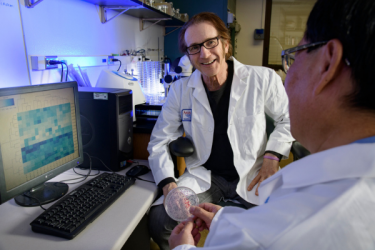In the initial years following completion of the Human Genome Project, the information was rarely useful or actionable in the clinic, despite being incredibly powerful to the research community. Research strategies have recently refocused on addressing this gap in understanding genomic medicine approaches, accelerating investment in translational research, and enabling the field of precision medicine.
But a question still remains: how actionable is this sequence information in a patient?
Genetic sequence information and applications are now readily abundant, and by and large, moving into the public domain. We have numerous FDA-approved molecular in vitro diagnostic tests, covering genes and biomarkers that have clear, evidence-based decision rules enabling precision therapeutics in a variety of disease systems. However, there is still an enormous number of diseases systems that could benefit from precision diagnostic, therapeutic, and prevention strategies.
The field of molecular diagnostics has expanded rapidly since the sequencing of the human genome. Technological advances are now enabling physicians and scientists alike to identify genes and mutations underlying disease much faster and more accurately than we could in 2003, when we first decoded the genome. New and established companies are entering into this increasingly competitive field to diagnose human disease in ways that were never before possible. Now, physicians can order whole genome sequencing on a pediatric patient with an undiagnosed condition, sequencing drug metabolism genes to understand how their patients could respond to certain prescription medications, or use genetic data to guide cancer prevention strategies in high-risk patients.
TCAG2M is working with organizations across the UA campus, collaborators at premier institutions throughout the country, and our industry partners to advance the field of molecular diagnostics in precision medicine.





